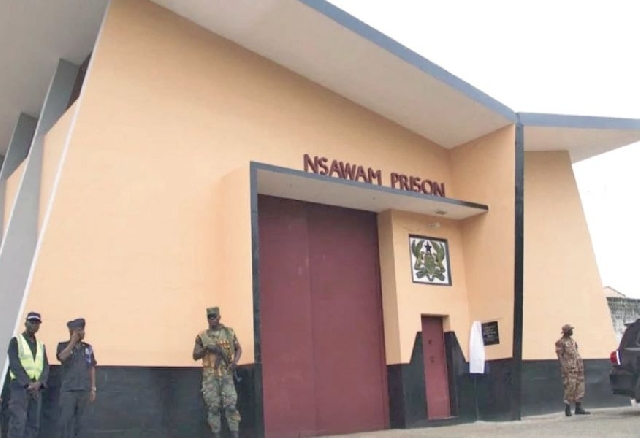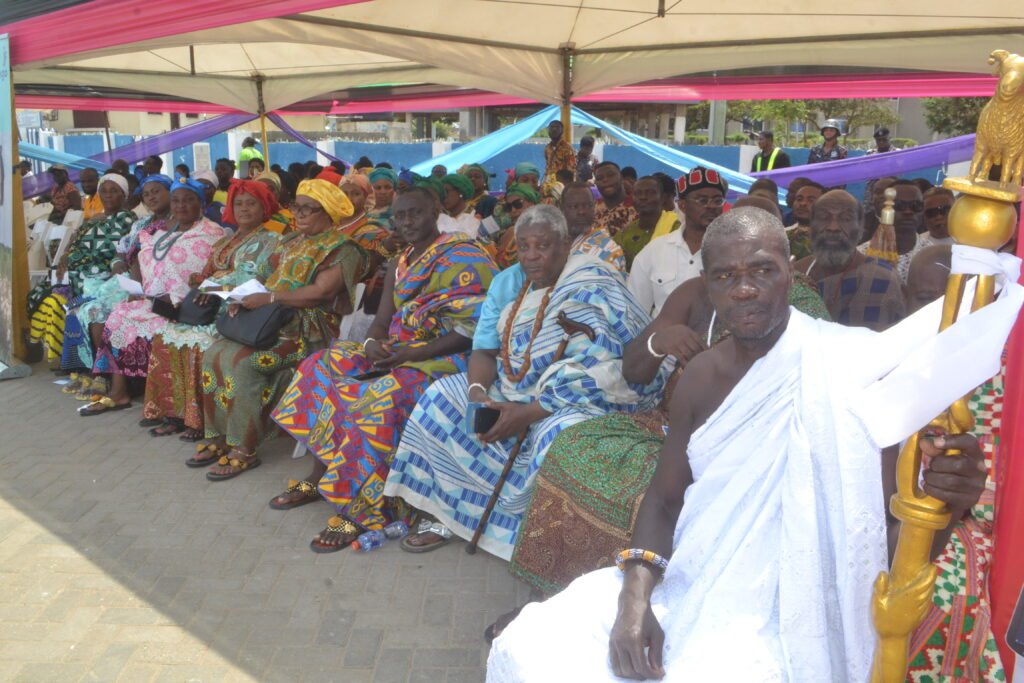![Coronavirus pandemic: A case to decongest Ghana’s overpopulated prisons [Article]](https://citinewsroom.com/wp-content/uploads/2020/04/Nsawam-Prison.jpg)
I do not intend to portray myself as a public health expert or a seasoned security analyst. I’m only writing as a concerned prisoner to highlight the pressing need to decongest Ghana’s overpopulated prisons, to allow for some level of social distancing before the deadly coronavirus rear its ugly head in the 44 prison installations housing over 15,000 inmates.
First, I wish to thank the President of the Republic of Ghana for granting amnesty to some 808 inmates.
I wish to however draw his attention to the fact that, at the time of signing the amnesty, a significant number of the beneficiaries had already left the prisons on expiration of their sentences. For example, at the Nsawam Medium Security Prisons, just fewer than 30 inmates actually enjoyed the amnesty.
When this figure is juxtaposed against the prison population in Nsawam in the region of 3,500, one cannot help but to declare the move as woefully inadequate. This should therefore not create a sense of falsehood that the numbers in the prisons have been reduced to contain a possible coronavirus outbreak in the prisons.
There is still a lot government can do to further decongest the prisons to avoid possible catastrophe should the virus enter the prisons in Ghana. It is for this reason that I write this article.
According to the Ghana Prisons Service, prisons in Ghana are about 52% overpopulated. At the Nsawam Medium Security Prison, prison cells are about 400% overpopulated creating fertile grounds for an outbreak of any disease to thrive. Indeed, we have been battling other diseases such as tuberculosis for a while now. The congestion makes it practically impossible to practice social distancing.
However, the World Health Organization (WHO) advocates strongly for all to practice social distancing to avoid contaminated droplets to find its way into our mouths, eyes and ears. In all communications of the President, Nana Addo Dankwa Akufo-Addo, he has advocated strongly for social distancing. It is for this reason that he has shut schools, churches, beaches, markets, and has placed Kumasi, Accra, Tema and Kasoa under lockdown. This explains how important it is for all to practice social distancing.
We in prisons are humans and fundamentally we need to enjoy this human right in the midst of this dreaded corona virus. Social distancing can thus be possible only if the prison population is reduced significantly. One must note that prison health is public health, as any efforts to control COVID-19 in the communities are likely to fail if strong infection prevention and control measures, adequate testing, treatment and care are not carried out in prisons as well.
According to the WHO, people in prison typically have a greater underlying burden of disease and worse health conditions than the general population, and frequently face greater exposure to risks such as smoking, poor hygiene and weak immune defence due to stress, poor nutrition, or prevalence of coexisting diseases, such as blood borne viruses, tuberculosis and drug use disorders.
The above conditions have been known to create complications when one contracts the virus resulting in several deaths. Prisoners in Ghana are poorly fed. Since 2012, prisoners in Ghana are fed on a paltry GHS1.80 compelling the Prisons Service to provide malnourished meals. For instance, Banku and porridge is served once a day in 365 days a year. And this poor nutrition is likely to undermine the immune systems of prisoners. At the moment, that there are no vaccines, the immune systems of individuals has become critical for persons with COVID-19. Because of these serious risks, the UN High Commissioner for Human Rights, Michelle Bachelet, has called on governments to take urgent steps to reduce prison population, protect people in places of detention, and prevent uncontrollable outbreaks.
Under the circumstances, government cannot take it as business as usual and leave just a few people on amnesty risking the lives of majority of prisoners. The current system of granting amnesty to first offenders of various crimes that have spent half of their sentences is never the solution to decongesting the prisons.
As we are all aware, we are not in normal times. There is the urgent need to decongest the prisons by granting pardon to prisoners who are in their old age, prisoners critically ill, first offenders whose risk profile are low and others who have exhibited excellent behaviour in prisons. There are blueprints for the government to follow as several countries have responded to the pandemic by reducing significantly prison population.
For example, Algeria released prisoners who had about 18 months left to serve on their sentences, Indonesia has released 22,000 of its prisoners, Iran has released over 70,000 of its prisoners, the United States of America, Italy, Spain, France among other countries, have followed the trend. I doubt we want to follow the steps of England and Wales who have recorded nearly 1,000 coronavirus cases in their prisons with about 23 deaths.
They failed to act, and they’re now considering pardoning around 4,000 of their prisoners. In addition to pardoning some categories of prisoners during this pandemic, the police are to cease arresting people for minor offences, and where strictly necessary, non-custodial measures should be used instead such as diversion, a warning or bail.
Nsawam Prisons

During this period, the Nsawam Medium Security Prisons has been admitting new convicts most of whom are serving low sentences ranging from 30 days to 5 years. Whiles the move further congests the prisons, the new admissions, police officers and prison officers pose significant risk to inmates who are already secured.
In truth, the Nsawam Prisons has put in some measures to reduce the risk of the virus entering the prisons. For example, all officers and inmates have their temperature checked before entering the prison’s gate. But according to John Miller, a mathematical epidemiologist at Australia’s La Trobe University, taking peoples’ temperatures “does not provide much security because the evidence suggests that a decent amount of COVID-19 transmission comes from infected people who are yet to show symptoms”.
In conclusion, I would like to state that the situation in Ghana’s prisons is horrible, and that an impending catastrophe is inevitable should the coronavirus enter the congested prisons in Ghana.
With aforementioned reasons coupled with the plea of prisoners across Ghana, government should decongest the prisons by granting pardon to more prisoners. We are not in normal times; and thus we cannot follow the same protocol for granting amnesty. As a listening government, I hope Nana Addo Dankwa Akufo-Addo will listen to the cry of prisoners across the length and breadth of Ghana.
The Author (name withheld), is a prisoner in one of Ghana’s prisons.
The post Coronavirus pandemic: A case to decongest Ghana’s overpopulated prisons [Article] appeared first on Citinewsroom - Comprehensive News in Ghana, Current Affairs, Business News , Headlines, Ghana Sports, Entertainment, Politics, Articles, Opinions, Viral Content.
Read Full Story





















Facebook
Twitter
Pinterest
Instagram
Google+
YouTube
LinkedIn
RSS